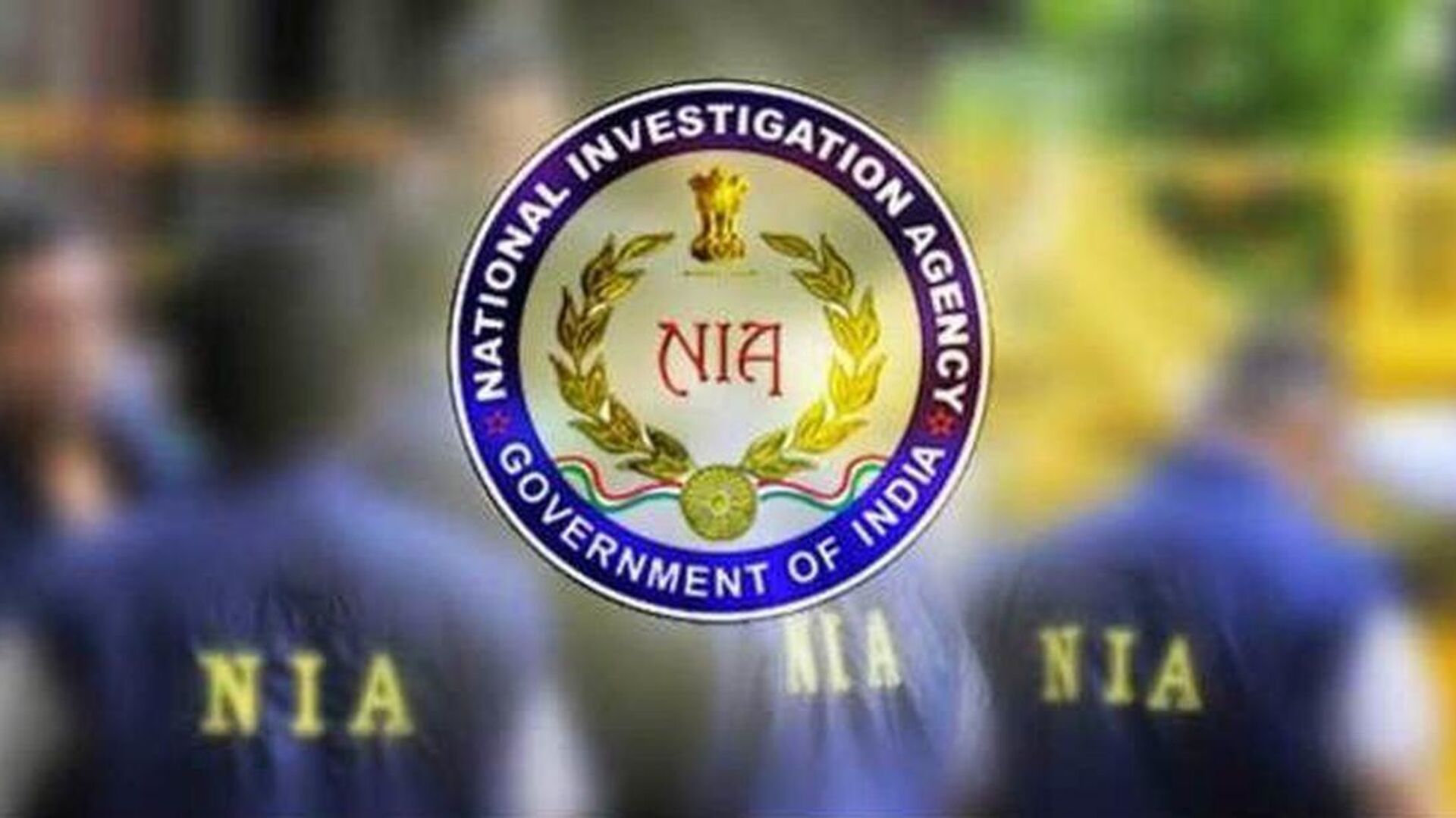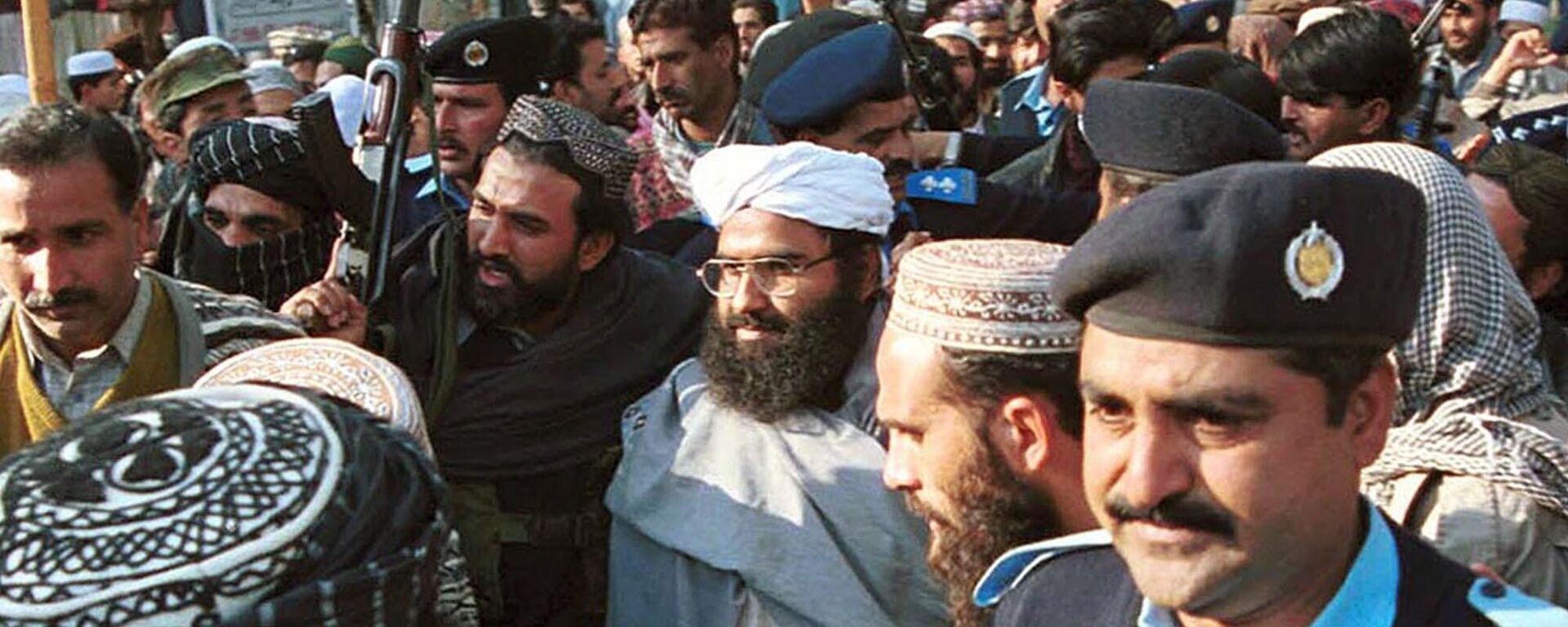https://sputniknews.in/20241011/decoding-the-threat-to-india-from-hizb-ut-tahrir-8263789.html
Decoding the Threat to India From Hizb-ut-Tahrir
Decoding the Threat to India From Hizb-ut-Tahrir
Sputnik India
India has designated Hizb-ut-Tahrir* as a terrorist organisation under the Unlawful Activities Prevention Act (UAPA), citing its role in radicalising youth to... 11.10.2024, Sputnik India
2024-10-11T17:37+0530
2024-10-11T17:37+0530
2024-10-11T18:49+0530
terrorism
sheikh hasina
india
bangladesh
tamil nadu
national investigation agency (nia)
inter-services intelligence (isi)
us
central asia
daesh (isis/is/islamic state)
https://cdn1.img.sputniknews.in/img/07e7/02/0f/885977_58:0:1139:608_1920x0_80_0_0_278109d1160ef2d02b5267e61d47f129.jpg
The threat perception of Hizb-ut-Tahrir (HuT) in India is likely to grow in coming days due to developments in the neighbourhood, particularly in Bangladesh, where the supporters of the fundamentalist group have held several marches since August, demanding the revocation of the ban, counterterrorism experts have told Sputnik India.Even though HuT claims to be a "non-violent" organisation, it is dangerous because of its ability to establish strong networks with local and international Islamist groupings, which include terrorist, political and civil society groups, Pandya explained.HuT has managed to establish a presence in around 40 countries, which include South, Southeast and Central Asia, Middle East and the West, he highlighted. Pandya said that in countries such as Pakistan and Bangladesh, HuT has managed to "cultivate" adherents to the extremist Deobandi sect of Islam.HuT operatives across different geographies are believed to be working in "close coordination", enabled by encrypted messaging apps, Pandya pointed out.Pandya noted that HuT operatives across various regions are believed to be coordinating closely through encrypted messaging apps, which have become a significant tool for terrorist groups to 'indoctrinate gullible Indians', he said. National borders are becoming irrelevant, as these groups use radical propaganda to recruit people in different areas, he stressed.Rahman was involved in propagating secessionism, spreading disaffection and seeking support from foreign powers to "liberate Kashmir", the NIA said, stating that "the ulterior motive of the conspiracy was to establish a Khilafat by overthrowing the Government of India through violent jihad."Rahman is the seventh HuT operative to be arrested in recent months, with others being Dr Hameed Hussain, Ahamed Mansoor, Abdul Rahman, Mohamed Maurice, Kadar Nawaz Sharif, and Ahmed Ali Umari, all of the Indian citizens from Tamil Nadu, according to FIR filed by the NIA in July. HuT operatives had been holding "secret meetings at Modern Essential Education Trust (MEET)" in Chennai. The NIA has said the development has "international and national ramifications with interstate linkages", according to the report.The group has been seeking to "infiltrate university campuses and civil society through front organisations and covert operatives", Bangladeshi counter-terrorism expert Salah Uddin Shoaib Choudhury told Sputnik India commenting on HuT's modus operandi.Chowdhury noted that students from top schools in Dhaka had held a march carrying Daesh*-styled flags this week, adding that Bangladeshi Police had squarely blamed HuT for these activities."These developments in Bangladesh are an alarm bell for India," he concluded.*terrorist organisations banned in Russia
https://sputniknews.in/20241009/how-us-enabled-islamic-terror-ecosystem-in-south-asia-8254031.html
india
bangladesh
tamil nadu
us
central asia
Sputnik India
feedback.hindi@sputniknews.com
+74956456601
MIA „Rossiya Segodnya“
2024
Dhairya Maheshwari
https://cdn1.img.sputniknews.in/img/07e6/0c/13/138962_0:0:641:640_100x100_80_0_0_2cb44360dbcdf6d84bf4b299cd045917.jpg
Dhairya Maheshwari
https://cdn1.img.sputniknews.in/img/07e6/0c/13/138962_0:0:641:640_100x100_80_0_0_2cb44360dbcdf6d84bf4b299cd045917.jpg
News
en_IN
Sputnik India
feedback.hindi@sputniknews.com
+74956456601
MIA „Rossiya Segodnya“
Sputnik India
feedback.hindi@sputniknews.com
+74956456601
MIA „Rossiya Segodnya“
Dhairya Maheshwari
https://cdn1.img.sputniknews.in/img/07e6/0c/13/138962_0:0:641:640_100x100_80_0_0_2cb44360dbcdf6d84bf4b299cd045917.jpg
terrorism, sheikh hasina, india, bangladesh, tamil nadu, national investigation agency (nia), inter-services intelligence (isi), us, central asia, daesh (isis/is/islamic state), terror charges, terror outfits, cross-border terrorism, counter-terrorism, terrorist attack, collective west
terrorism, sheikh hasina, india, bangladesh, tamil nadu, national investigation agency (nia), inter-services intelligence (isi), us, central asia, daesh (isis/is/islamic state), terror charges, terror outfits, cross-border terrorism, counter-terrorism, terrorist attack, collective west
Decoding the Threat to India From Hizb-ut-Tahrir
17:37 11.10.2024 (Updated: 18:49 11.10.2024) India has designated Hizb-ut-Tahrir* as a terrorist organisation under the Unlawful Activities Prevention Act (UAPA), citing its role in radicalising youth to join groups like ISIS* and in fundraising for terrorism.
The threat perception of Hizb-ut-Tahrir (HuT) in India is likely to grow in coming days due to developments in the neighbourhood, particularly in Bangladesh, where the supporters of the fundamentalist group have held several marches since August, demanding the revocation of the ban, counterterrorism experts have told Sputnik India.
"Hizb-ut-Tahrir has been found to be very efficient in establishing close working relationships with other allied groups. We have been seeing how Islamists, including Hizb-ut-Tahrir, have been seeking to fill the power vacuum left after Hasina's ouster. There have been marches by its supporters, including several of them this month, seeking to revoke the ban on Hizb-ut-Tahrir," remarked Abhinav Pandya, Founder and CEO of Usanas Foundation and the author of a new book, Inside the Terrifying World of Jaish-e-Mohammed (JeM)*.
Even though HuT claims to be a "non-violent" organisation, it is dangerous because of its ability to establish strong networks with local and international Islamist groupings, which include terrorist, political and civil society groups, Pandya explained.
"This is a major reason why it becomes challenging to impose a legal ban on the organisation. However, governments across the world have increasingly become cognisant of the covert activities of Hizb-ut-Tahrir in recent years," Pandya said.
HuT has managed to establish a presence in around 40 countries, which include South, Southeast and Central Asia, Middle East and the West, he highlighted. Pandya said that in countries such as Pakistan and Bangladesh, HuT has managed to "cultivate" adherents to the extremist Deobandi sect of Islam.
"Hizb-ut-Tahrir has also managed to attract the educated strata of society, which include white-collar professionals like doctors, professors and executives. Its members have been trying to influence government decisions and policy on various matters," the expert stated.
HuT operatives across different geographies are believed to be working in "close coordination", enabled by encrypted messaging apps, Pandya pointed out.
Pandya noted that HuT operatives across various regions are believed to be coordinating closely through encrypted messaging apps, which have become a significant tool for terrorist groups to 'indoctrinate gullible Indians', he said. National borders are becoming irrelevant, as these groups use radical propaganda to recruit people in different areas, he stressed.
Pandya noted that India's apex counter-terror agency National Investigation Agency (NIA) had been investigating a HuT module in Tamil Nadu, after taking over the probe into the case in July. India's decision to designate HuT as a terrorist organisation came a day after the NIA arrested an alleged operative Faizul Rahman, the "state Amir" of the group in Tamil Nadu and Puducherry, according to an official statement.
Rahman was involved in propagating secessionism, spreading disaffection and seeking support from foreign powers to "liberate Kashmir", the NIA said, stating that "the ulterior motive of the conspiracy was to establish a Khilafat by overthrowing the Government of India through violent jihad."
Rahman is the seventh HuT operative to be arrested in recent months, with others being Dr Hameed Hussain, Ahamed Mansoor, Abdul Rahman, Mohamed Maurice, Kadar Nawaz Sharif, and Ahmed Ali Umari, all of the Indian citizens from Tamil Nadu, according to FIR filed by the NIA in July. HuT operatives had been holding "secret meetings at Modern Essential Education Trust (MEET)" in Chennai. The NIA has said the development has "international and national ramifications with interstate linkages", according to the report.
The group has been seeking to "infiltrate university campuses and civil society through front organisations and covert operatives", Bangladeshi counter-terrorism expert Salah Uddin Shoaib Choudhury told Sputnik India commenting on HuT's modus operandi.
"During recent times, the Deep State and Pakistani ISI most definitely have joined hands with it targeting Bangladesh and India," he opined.
Chowdhury noted that students from top schools in Dhaka had held a march carrying Daesh*-styled flags this week, adding that Bangladeshi Police had squarely blamed HuT for these activities.
"These developments in Bangladesh are an alarm bell for India," he concluded.
*terrorist organisations banned in Russia



